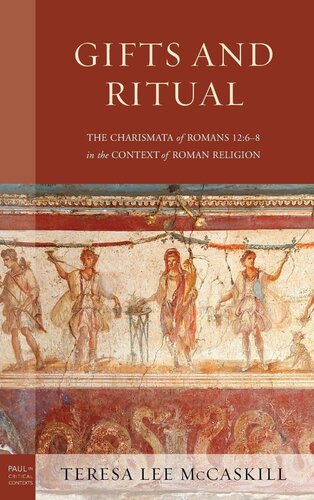

Most ebook files are in PDF format, so you can easily read them using various software such as Foxit Reader or directly on the Google Chrome browser.
Some ebook files are released by publishers in other formats such as .awz, .mobi, .epub, .fb2, etc. You may need to install specific software to read these formats on mobile/PC, such as Calibre.
Please read the tutorial at this link: https://ebookbell.com/faq
We offer FREE conversion to the popular formats you request; however, this may take some time. Therefore, right after payment, please email us, and we will try to provide the service as quickly as possible.
For some exceptional file formats or broken links (if any), please refrain from opening any disputes. Instead, email us first, and we will try to assist within a maximum of 6 hours.
EbookBell Team

0.0
0 reviewsPaul’s teaching about divine benefactions in Rom 12:6–8 extends the theme of worship that he establishes in Rom 12:1–2. Together, these passages address a uniquely gentile dilemma that many in his audience faced as new Christ-followers, which was the challenge of finding acceptable replacements for former cultic activities that were woven through all of life’s stages, from birth to death. One of the chief shortcomings of the scholars that have written about Rom 12:6–8 is a failure to address what Paul's gentile audience might have brought to his teaching and how his alignment of gifts with ritual (Rom 12:1–2) mirrored their polytheistic background. By analyzing examples from ancient texts and artifacts, Teresa Lee McCaskill shows that all seven of the terms Paul uses in Rom 12:6–8 would have had recognizable cultic antecedents for first-century worshipers in Rome. McCaskill presents a theoretical model that discusses how Paul’s gentile audience might have viewed the charismata and considered them as examples of sanctioned practices to replace former rituals. She also weighs the effectiveness of these particular gifts for furthering Paul’s missional objectives.